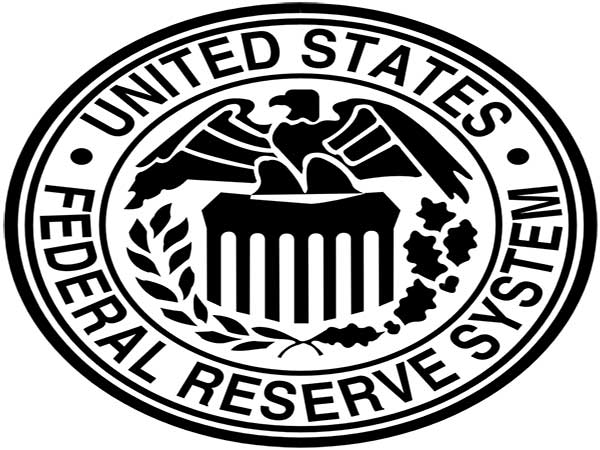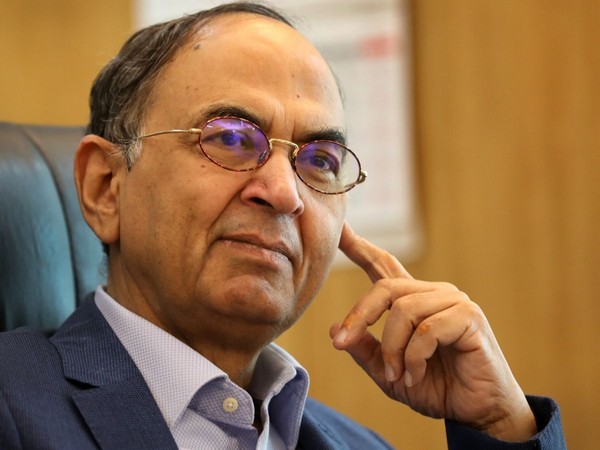
World Insights: Fed's six consecutive rate hikes could further drag on U.S., world economy
Nov 06, 2022
Beijing (China), November 6: The U.S. Federal Reserve recently announced the fourth consecutive three-quarter point interest rate hike in an attempt to cool white-hot inflation.
This jumbo-size rate hike made on Wednesday takes the Fed's policy rate to a new target range of 3.75-4 percent, the highest level since January 2008. To bring down inflation, the Fed has raised interest rates six times this year with a total increase of 375 basis points.
As one of the Fed's most hawkish policy moves in decades, the series of rate hikes threatens to further take a heavy toll on the lives of millions of U.S. households and businesses. It could not only put a drag on the U.S. economy and plunge the country into a recession, but also send shockwaves across the world.
GLOBAL TURMOIL
Global markets have reacted negatively to the Fed's latest rate hike.
Yet the shockwaves have been felt beyond the stock market. Amid the Fed's rate hikes, the value of the U.S. dollar compared to other currencies increased. The United Nations (UN) Conference on Trade and Development said in its Trade and Development Report 2022 that around 90 developing countries have seen their currencies weaken against the dollar this year, over one third of them by more than 10 percent.
"For many emerging markets, the strength of the dollar is causing acute challenges, tightening financial conditions, and increasing the cost of imported goods," the International Monetary Fund said in its latest World Economic Outlook Report.
In an opinion piece published Tuesday by CNN, Desmond Lachman, a senior fellow at the American Enterprise Institute, paid special attention to the impact of the Fed's rate hikes on developing countries and emerging economies.
"Emerging market economies, including Sri Lanka and Zambia, have defaulted on their debts, and many others are now nearing default as high U.S. interest rates encourage capital repatriation from those countries," Lachman said.
"What the Fed does at home reverberates across the globe, and its actions are raising the risks of a global recession while causing economic and financial pain in many developing countries," he said.
The Fed's rate hikes have also reached developed countries. In an article titled "Strong U.S. Dollar Is Wreaking Havoc Across Pretty Much Every Country," Fortune magazine noted it is "ratcheting up pressure" on other major central banks to raise interest rates, yet their "limited" ability to "influence the dollar's strength."
"The Fed's trade-weighted dollar index versus advanced economies has soared 10 percent this year to the strongest since 2002," it said.
TOO MUCH FOR TOO LITTLE
The whirlwind of rate hikes has so far made little progress in taming inflation at home. An article published by The New York Times (NYT) in mid-October said the consumer price index climbed 8.2 percent in September versus the prior year, down slightly from 8.3 percent in the previous month, "but that was because gasoline prices had fallen, a trend that has since reversed."
"The so-called core index climbed by 6.6 percent, the fastest pace since 1982 and more than economists had expected," it said, adding that month-to-month figures also looked bad.
"That's the most aggressive string of rate hikes in decades, but so far it's done little to curb inflation," the National Public Radio said Wednesday.
In fact, such unrelenting rate hikes have put a further drag on the U.S. economy and increased the risk of a recession. Growth in consumer spending slowed to a 1.4-percent rate from the April-June quarter's 2.0-percent pace. Mortgage rates surged to more than 7 percent, the highest in 20 years. Sales of newly built homes fell 10.9 percent in September from August and 17.6 percent year-on-year. Personal income is growing at just 4.3 percent.
"The probability of a downturn over the next 12 months stands at 60 percent, up from 50 percent in September and double what it was six months ago," said a Bloomberg monthly survey of economists published on Oct. 14.
More pessimistically, a recession probability model by Bloomberg economists forecasted a 100-percent chance of a recession by October 2023.
"Trade distortions accounted for almost all the gain (in the U.S. economy), and that won't likely be repeated during future quarters. Other important categories were weak, a trend economists expect to worsen as the Fed keeps cranking interest rates higher," Yahoo Finance columnist Rick Newman said in an article published last week.
The University of Michigan's confidence index is "roughly equal to the lowest levels of the Great Recession in 2008 and 2009," Newman noted.
"POLICY BLUNDERS"
In the late 1970s, then U.S. Fed Chair Paul Volcker significantly raised the Fed's interest rate to control inflation, bitter medicine which led to not one, but two recessions before prices finally stabilized.
Now, many experts think of Fed Chair Jerome Powell as "Volcker's wannabe second coming" and worry about another Volcker Shock given the Fed's current aggressive moves.
Ever since the Fed altered its monetary policy in 2022, there has been growing criticism at home and abroad about its inability to make the right policy decisions.
While noting "the serious policy mistake that the Volcker Fed made," an opinion article by the Financial Times published in mid-September said there are many parallels of what happened then with what the Fed is facing now.
"The Fed's credibility to keep inflation under control was weakened by its policy mistakes -- abandoning a pre-emptive policy to control inflation in 2021 and the flawed execution of a new strategy framework targeting an average inflation rate in late 2020," it said.
"Last year's shockingly irresponsible monetary policy led to most of today's inflation," U.S. public policy analyst Michael Busler wrote in an article published in mid-October on Newsmax. On Thursday, MarketWatch called the Fed's handling of inflation one of the "two major policy blunders in the last 25 years."
A few experts even regard the economic slowdown as "one intended effect" of the central bank's six consecutive rate hikes this year, as it defied warnings driven by such experiences as the Volcker Shock.
Furthermore, some critics have pointed to the selfishness of U.S. policymakers, citing such examples as Washington's statement in mid-October dismissing the risks of a stronger dollar and instead blaming anemic growth and policy missteps in other countries for dampening global economic growth.
"While occasionally called 'the central banker to the world' because of the dollar's foremost position, the Fed goes about its day-to-day business with its eye squarely on America," the NYT said in early October.
"It seems obvious that Washington had acted in an overzealous manner to revive the American economy, and ended up overheating it. But it is the global community that has to bear the adverse consequences of its policies," Indian scholar Biswajit Dhar wrote in an article published Tuesday on the New Indian Express.
Source: Xinhua









